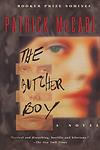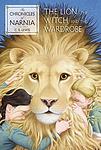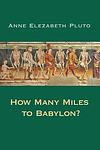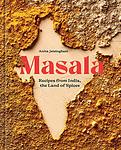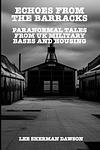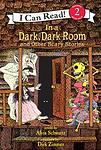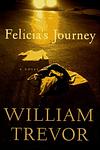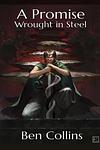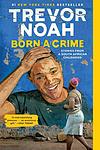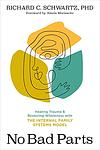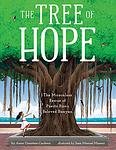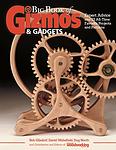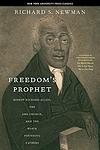Top 50 Irish Novels
This is one of the 284 lists we use to generate our main The Greatest Books list.
-
Ulysses by James Joyce
Set in Dublin, the novel follows a day in the life of Leopold Bloom, an advertising salesman, as he navigates the city. The narrative, heavily influenced by Homer's Odyssey, explores themes of identity, heroism, and the complexities of everyday life. It is renowned for its stream-of-consciousness style and complex structure, making it a challenging but rewarding read.
-
A Portrait of the Artist as a Young Man by James Joyce
This novel is a semi-autobiographical account of a young man's intellectual and artistic development in late 19th-century Ireland. The protagonist struggles with issues of identity, faith, and nationality, ultimately rejecting the traditional values of his Catholic upbringing to pursue his own path as an artist. The book is renowned for its innovative narrative style and its exploration of themes such as individuality, freedom, and the nature of art.
-
Amongst Women by John McGahern
"Amongst Women" is a novel that tells the story of Michael Moran, a bitter, aging Irish Republican Army (IRA) veteran, and his relationships with his wife and five children. The narrative explores themes of family, power, love, and the struggle between freedom and control. Moran's domineering personality and the effects of his past experiences in the IRA have a profound impact on his family, shaping their lives and relationships in complex and often destructive ways.
-
At Swim Two-Birds by Flann O'Brien
This novel is a complex, metafictional work that weaves together three separate narratives. The first is about a lazy, hard-drinking college student living with his uncle, the second is about a devilish Pooka and a loquacious old man, and the third is about a fictional character named Finn who seeks revenge on his author for creating him poorly. The narratives eventually intersect in a unique and humorous way, challenging traditional ideas of story structure and character autonomy.
-
The Picture of Dorian Gray by Oscar Wilde
The novel follows the life of a handsome young man who, after having his portrait painted, is upset to realize that the painting will remain beautiful while he ages. After expressing a wish that the painting would age instead of him, he is shocked to find that his wish comes true. As he indulges in a life of hedonism and immoral acts, his portrait becomes increasingly grotesque, reflecting the damage his actions have on his soul. The story serves as a cautionary tale about the dangers of vanity, selfishness, and the pursuit of pleasure without regard for consequences.
-
Gulliver's Travels by Jonathan Swift
This classic satire follows the travels of a surgeon and sea captain who embarks on a series of extraordinary voyages. The protagonist first finds himself shipwrecked on an island inhabited by tiny people, later discovers a land of giants, then encounters a society of intelligent horses, and finally lands on a floating island of scientists. Through these bizarre adventures, the novel explores themes of human nature, morality, and society, offering a scathing critique of European culture and the human condition.
-
The Third Policeman by Flann O'Brien
"The Third Policeman" is a darkly comedic and surreal novel about a nameless narrator who, after committing a murder to raise funds for his scholarly obsession with a bizarre pseudo-scientific theory, finds himself wandering in an eerie, nightmarish landscape. He encounters strange characters, including a pair of eccentric policemen who are obsessed with bicycles, and becomes embroiled in a series of increasingly absurd and ludicrous situations. The novel explores themes of existence, reality, and the nature of hell, with a twist ending that forces the reader to question everything they've read.
-
Dracula by Bram Stoker
This classic horror novel tells the story of Count Dracula's attempt to move from Transylvania to England so that he may find new blood and spread the undead curse, and of the battle between Dracula and a small group of people led by Professor Abraham Van Helsing. The narrative is composed of journal entries, letters, and telegrams written by the novel's protagonists, providing different perspectives on the gruesome events unfolding. The book touches on themes of sexuality, gender roles, and the clash of modern science with traditional superstition.
-
The Book Of Evidence 1988 by John Banville
"The Book of Evidence" is a gripping psychological novel that follows the life of Freddie Montgomery, a wealthy and educated man who turns to a life of crime. After committing a brutal murder, Freddie flees to Europe, where he reflects on his past and contemplates the nature of guilt and identity. Through his introspective and unreliable narration, the book delves into themes of alienation, obsession, and the complexities of human nature, leaving readers questioning the boundaries between truth and fiction.
-
The Butcher Boy by Patrick McCabe
The Butcher Boy is a dark and disturbing tale set in small-town Ireland, following the life of a troubled young boy who descends into madness and violence. The protagonist's life is filled with neglect, abuse and mental health issues, and his increasingly erratic behavior and gruesome fantasies lead him down a path of horrific actions. The novel provides a stark exploration of the effects of societal neglect and the failure of mental health systems.
-
Strumpet City by James Plunkett
"Strumpet City" is a historical novel set in Dublin, Ireland, during the 1913 Dublin Lockout. The narrative follows a diverse group of characters from different social classes as they navigate the struggles and hardships of life during this tumultuous time. The book vividly depicts the poverty, exploitation, and political unrest of the era, offering a rich and detailed portrait of Dublin and its people in the early 20th century.
-
The Chronicles of Narnia by C. S. Lewis
This seven-part series follows the adventures of various children who play central roles in the unfolding history of the fantastical realm of Narnia. The children are magically transported to Narnia from our world, where they aid the noble lion Aslan in his struggles against evil forces in order to restore peace and justice. The series explores themes of good versus evil, the nature of faith, and the power of sacrifice, all set against a richly imagined magical world full of diverse creatures and landscapes.
-
The Country Girls by Edna O'Brien
"The Country Girls" is a coming-of-age novel about two young Irish women, Kate and Baba, who grow up in the restrictive and repressed atmosphere of rural Ireland in the 1950s. The narrative follows their journey from a convent school to the bright lights of Dublin, where they seek love and adventure. The novel explores themes of female friendship, sexual awakening, and the struggle for personal freedom against the backdrop of a conservative society.
-
Molloy by Samuel Beckett
"Molloy" is a complex and enigmatic novel that follows the journey of its eponymous character, an elderly, disabled vagabond, who is tasked with finding and killing a certain person. The narrative is split into two parts: the first is told from Molloy's perspective as he navigates his way through a strange and often hostile world, while the second follows a detective named Moran who is assigned to find Molloy. The novel is renowned for its challenging narrative structure, its bleak and absurdist humor, and its profound exploration of themes such as identity, existence, and the human condition.
-
Tarry Flynn by Patrick Kavanagh
"Tarry Flynn" is a poignant and humorous coming-of-age novel set in rural Ireland. The story follows the life of Tarry Flynn, a young and dreamy farmer who struggles to fit into the conservative society of his small village. As he navigates through the complexities of love, religion, and societal expectations, Tarry's vivid imagination and poetic soul provide a refreshing perspective on the challenges of rural life in mid-20th century Ireland.
-
The Lonely Passion of Judith Hearne by Brian Moore
The novel revolves around the life of Judith Hearne, a lonely middle-aged spinster living in 1950s Belfast who struggles with her declining social status and her increasing reliance on alcohol. As she desperately seeks companionship and purpose in life, she becomes infatuated with her boarding house's landlady's brother, only to face rejection and further isolation. The book explores themes of loneliness, faith, disillusionment, and the harsh realities of ageing.
-
The Last Bouquet by Marjorie Bowen
"The Last Bouquet" by Marjorie Bowen is a captivating historical novel set in 18th-century France. The story follows a young woman named Genevieve, who finds herself caught in the midst of the French Revolution. As chaos and violence engulf the nation, Genevieve's life takes a dramatic turn when she becomes entangled with a group of revolutionaries. Faced with difficult choices and dangerous secrets, she must navigate a treacherous path to protect her loved ones and find her own freedom. Bowen's vivid storytelling and rich historical detail bring this tumultuous period to life, offering a compelling tale of love, sacrifice, and resilience.
-
Tristram Shandy by Laurence Sterne
The novel is a humorous, rambling narrative that chronicles the life of Tristram Shandy. The story is filled with digressions, anecdotes, and eccentric characters, as Tristram often interrupts his own tale to interject commentary or to recount stories from his family's past. Despite the seemingly haphazard structure, the novel is a clever exploration of narrative form and a satirical critique of traditional biographies and novels.
-
How Many Miles To Babylon? by Jennifer Johnston
"How Many Miles To Babylon?" is a poignant and gripping novel set during World War I, exploring the complex friendship between two young Irishmen, Alec and Jerry. Born into different social classes, their lives intertwine as they navigate the harsh realities of war, family expectations, and their own desires for freedom and happiness. As they face the horrors of the trenches and the devastating consequences of their choices, the novel delves into themes of love, sacrifice, and the futility of war, leaving readers with a profound reflection on the human condition.
-
The Land Of Spices by Kate O'Brien
"The Land of Spices" by Kate O'Brien is a captivating novel set in a Catholic convent school in Ireland during the early 20th century. The story follows the life of Mother Marie-Helene, a French nun who becomes the headmistress of the school. As she navigates the challenges of her position, she also grapples with her own desires and the conflicts between her faith and her personal longings. Through vivid descriptions and complex characters, the novel explores themes of love, duty, and the struggle to reconcile one's desires with societal expectations.
-
Murphy by Samuel Beckett
The novel explores the life of the titular character, a disaffected and detached man living in London who prefers the realm of his own thoughts to the real world. After securing a job as a nurse at a mental institution, he becomes increasingly detached from reality. The narrative also delves into his relationships with various other characters, including his fiancée, his best friend and a prostitute. The book is known for its dark humor and its exploration of themes such as existentialism and the nature of human consciousness.
-
The Barracks by John McGahern
"The Barracks" is a poignant and introspective novel that delves into the lives of a family living in a rural Irish barracks. Set in the 1950s, the story follows Elizabeth Reegan, a widow struggling to find her place in a changing society, and her three children as they navigate the complexities of love, loss, and the search for personal identity. McGahern's lyrical prose beautifully captures the emotional nuances of the characters, painting a vivid portrait of a family grappling with their own desires and societal expectations.
-
Castle Rackrent by Maria Edgeworth
"Castle Rackrent" is a satirical novel that chronicles the declining fortunes and ultimate ruin of a once noble Irish family through the eyes of their loyal and long-serving steward. The family's successive heirs each contribute to the downfall through their reckless extravagance, drunkenness, gambling, and overall mismanagement. The narrative provides a critique of the Anglo-Irish landlords of the time, highlighting their exploitation of the Irish peasantry and their disregard for the responsibilities that came with their privileged position.
-
The Woman Who Walked Into Doors by Roddy Doyle
"The Woman Who Walked Into Doors" is a poignant and raw portrayal of a woman named Paula Spencer, who recounts her life as a victim of domestic abuse. Through her honest and unfiltered narrative, the book explores the complexities of love, addiction, and the lasting impact of trauma on one's identity. Paula's story is a powerful examination of resilience and the strength it takes to break free from the cycle of violence.
-
Reading In The Dark by Seamus Deane
"Reading In The Dark" is a captivating novel that delves into the complex history of Northern Ireland through the eyes of an unnamed protagonist. Set against the backdrop of political turmoil and sectarian violence, the story follows the protagonist's journey of self-discovery as he unravels family secrets and confronts the ghosts of the past. Seamlessly blending personal and political narratives, the book explores themes of memory, identity, and the power of storytelling, ultimately offering a poignant reflection on the lasting impact of history on individuals and communities.
-
Felicia's Journey by William Trevor
"Felicia's Journey" is a psychological thriller about a young, pregnant Irish girl who travels to England in search of her boyfriend, only to be taken in by a middle-aged man with a dark past. As the story unfolds, the man's sinister intentions become increasingly apparent, creating a suspenseful tale of manipulation and deception. The novel explores themes of loneliness, innocence, and the capacity for evil, offering a chilling exploration of human nature.
-
The Captains And The Kings by Jennifer Johnston
"The Captains And The Kings" is a poignant and introspective novel that delves into the complex dynamics of a wealthy Irish family. Set against the backdrop of political unrest and social change in Ireland, the story follows the lives of the dysfunctional King family as they navigate through personal tragedies, secrets, and the weight of their own expectations. With beautifully crafted prose and deeply flawed characters, the book explores themes of love, loss, and the enduring power of family bonds.
-
Fools of Fortune by William Trevor
"Fools of Fortune" is a tragic tale that follows the lives of the Quinton family, an Anglo-Irish family living in Ireland, during the early 20th century. The family's fortune takes a turn for the worse after a devastating fire, believed to be an act of revenge by Irish nationalists, claims the lives of several family members. The surviving members are left to grapple with their loss, guilt, and the political turmoil of their time, leading to a cycle of self-destruction and a desperate search for redemption.
-
Good Behaviour by Molly Keane
"Good Behaviour" is a darkly humorous and compelling novel that delves into the dysfunctional lives of the St. Charles family. Set in the early 20th century, the story is narrated by Aroon, the youngest daughter, who chronicles her family's eccentricities, secrets, and the complex dynamics that shape their relationships. As Aroon navigates her way through a world of privilege and societal expectations, she grapples with her own desires and the consequences of her actions. With sharp wit and keen observations, the novel explores themes of love, betrayal, and the lengths people will go to maintain appearances.
-
The South by Colm Tóibín
"The South" by Colm Toibin is a compelling novel that follows the journey of a young Irish woman named Katherine as she leaves her troubled marriage behind and embarks on a new life in Spain. Set against the backdrop of political unrest and cultural differences, Katherine's experiences in the vibrant and mysterious south of Spain shape her identity and challenge her perceptions of love, art, and self-discovery. With rich prose and nuanced characters, Toibin explores themes of longing, transformation, and the complexities of human relationships in this captivating tale.
-
December Bride by Sam Hanna Bell
"December Bride" is a poignant and captivating novel set in rural Northern Ireland during the early 20th century. The story follows the life of a young woman named Sarah, who finds herself caught between tradition and her own desires. As she navigates the complexities of love, family, and societal expectations, Sarah must make difficult choices that will shape her future. With its vivid descriptions and richly drawn characters, this book explores themes of identity, sacrifice, and the enduring power of love.
-
The Real Charlotte by Edith Somerville, Violet Florence Martin
"The Real Charlotte" is a captivating novel that delves into the complex dynamics of a wealthy Irish family in the late 19th century. The story follows the arrival of Charlotte, a cunning and manipulative woman, who disrupts the lives of the family members as she schemes her way into their lives and fortunes. With themes of love, betrayal, and social class, the book explores the dark side of human nature and the consequences of unchecked ambition.
-
The Emperor Of Ice Cream by Brian Moore
"The Emperor of Ice Cream" is a captivating novel that follows the life of a young Irish immigrant named Gavin Burke, who moves to New York City in search of a better future. Set in the 1920s, the story explores Gavin's struggles and triumphs as he navigates the harsh realities of the city, including poverty, discrimination, and the allure of the American Dream. With vivid descriptions and compelling characters, the book delves into themes of identity, love, and the pursuit of happiness, painting a poignant portrait of one man's journey towards self-discovery and acceptance.
-
Death And Nightingales by Eugene McCabe
"Death and Nightingales" is a gripping and atmospheric novel set in 19th-century Ireland. The story follows Beth, a young woman trapped in a loveless marriage, who plans to escape with her lover, Liam. As the narrative unfolds over the course of a single day, tensions rise, secrets are revealed, and the characters' lives become entangled in a web of desire, betrayal, and violence. With its richly drawn characters and evocative prose, the book explores themes of love, power, and the consequences of one's choices in a society marked by oppression and turmoil.
-
The Charwomen's Daughter by James Stephens
"The Charwomen's Daughter" is a captivating novel that follows the life of a young girl growing up in poverty-stricken Dublin during the early 20th century. Through her eyes, readers witness the struggles and hardships faced by her family, as well as the resilience and determination that drives her to overcome adversity. With vivid descriptions and a poignant narrative, the book explores themes of social inequality, family bonds, and the power of hope in the face of adversity.
-
The Parts by Keith Ridgway
"The Parts" is a thought-provoking novel that delves into the interconnected lives of various characters in a small Irish town. Through a series of fragmented narratives, the book explores themes of love, loss, and the complexities of human relationships. With its lyrical prose and intricate storytelling, "The Parts" offers a profound reflection on the human condition and the ways in which our lives intersect and shape one another.
-
The Siege of Krishnapur by J. G. Farrell
Set in India during the period of the British Empire, "The Siege of Krishnapur" is a historical novel that explores the events of the 1857 Sepoy Rebellion. The narrative focuses on the British residents of the fictional town of Krishnapur as they endure a prolonged siege by Indian soldiers. The story delves into the psychological, social, and physical challenges faced by the besieged, and the gradual disintegration of their Victorian-era beliefs and lifestyle. The novel is a commentary on the British Empire, colonialism, and the clash of cultures.
-
Langrishe, Go Down by Aidan Higgins
"Langrishe, Go Down" by Aidan Higgins is a poignant and introspective novel that delves into the lives of the Langrishe sisters, Imogen and Helen, as they navigate their way through the complexities of love, loss, and longing in rural Ireland. Set in the 1930s, this beautifully written narrative explores the sisters' turbulent relationships with the men in their lives and their struggle to find their own identities amidst societal expectations. With vivid descriptions and emotional depth, the novel captures the essence of a bygone era and offers a profound exploration of the human experience.
-
Black List, Section H by Francis Stuart
"Black List, Section H" is a gripping and thought-provoking novel that delves into the complex themes of identity, loyalty, and the consequences of war. Set during World War II, the story follows a group of individuals who find themselves entangled in a web of espionage and betrayal. As they navigate the treacherous landscape of Nazi-occupied Europe, their loyalties are tested, and they must confront the moral dilemmas that arise when faced with impossible choices. With its rich character development and atmospheric setting, this book offers a compelling exploration of the human spirit in the face of adversity.
-
Melmoth the Wanderer by Charles Robert Maturin
"Melmoth the Wanderer" is a gothic novel that tells the story of John Melmoth, a man who sells his soul to the devil for 150 extra years of life, and spends that time wandering the earth in search of someone who will take over the pact for him. The narrative is a complex series of nested stories, told by many different characters, and it explores themes of guilt, redemption, and the inherent evil of mankind.
-
The Banyan Tree by Christopher Nolan
"The Banyan Tree" is a captivating novel that follows the life of a young girl named Maya, who grows up in a small village in India. Set against the backdrop of the country's struggle for independence, the story explores Maya's journey of self-discovery, love, and resilience. Through her encounters with various characters and her deep connection with nature, Maya learns the power of hope and the importance of standing up for what she believes in. With vivid descriptions and rich cultural insights, this book offers a poignant and inspiring tale of one girl's determination to find her place in the world.
-
Birchwood 1973 by John Banville
"Birchwood 1973" by John Banville is a haunting and introspective novel that delves into the complex lives of the inhabitants of Birchwood House. Set in Ireland during the 1970s, the story follows Gabriel Godkin, a troubled young man who becomes entangled in a web of family secrets and personal demons. Through lyrical prose and vivid descriptions, Banville explores themes of identity, memory, and the lasting impact of the past on the present. As Gabriel navigates the enigmatic world of Birchwood House, readers are taken on a mesmerizing journey that blurs the line between reality and imagination.
-
Uncle Silas by Sheridan Le Fanu
"Uncle Silas" is a classic Gothic novel set in Victorian England that follows the story of a young, naive heiress who is left in the care of her mysterious and seemingly sinister Uncle Silas after her father's death. As she navigates her new life in his decrepit mansion, she uncovers dark family secrets, and begins to suspect her uncle may have ulterior motives. The novel explores themes of innocence, corruption, and the nature of evil, all set against the backdrop of a suspenseful and eerie atmosphere.
-
A Drama In Muslin by George Moore
"A Drama In Muslin" is a captivating novel that delves into the lives of a wealthy Irish family living in London during the late 19th century. The story revolves around the complex relationships and secrets that unfold within the family, particularly focusing on the struggles faced by the women. With its vivid descriptions and insightful exploration of societal norms and expectations, the book offers a compelling portrayal of the challenges and desires of individuals striving to find their own identity and happiness in a restrictive society.
-
Esther Waters by George Moore
"Esther Waters" is a compelling novel that follows the life of a young woman named Esther, who works as a kitchen maid and becomes pregnant after a brief affair with a footman. Facing societal judgment and abandonment, Esther is determined to provide a better life for her child. She finds work as a nursemaid and eventually marries a coachman, only to face further challenges and heartbreak. Through Esther's journey, the novel explores themes of love, class, and the struggles of a single mother in Victorian England.
-
The Big Chapel by Thomas Kilroy
"The Big Chapel" is a captivating novel that delves into the lives of a small Irish community in the 1950s. Set against the backdrop of religious and political tensions, the story follows the lives of two brothers, Brendan and Michael, as they navigate their way through a changing world. As they grow older, their paths diverge, with Brendan embracing the priesthood and Michael becoming involved in the political turmoil of the time. Through vivid storytelling and rich character development, the book explores themes of identity, faith, and the complexities of family relationships.
-
The Black Prophet by William Carleton
"The Black Prophet" is a captivating novel that delves into the turbulent times of 19th-century Ireland. Set against the backdrop of the Great Famine, the story follows the lives of a group of peasants who are plagued by poverty, oppression, and the looming threat of eviction. Amidst this bleak reality, a mysterious figure known as the Black Prophet emerges, claiming to possess supernatural powers and offering hope to the desperate and downtrodden. As the villagers become increasingly drawn to his charismatic presence, they must grapple with their own beliefs, fears, and the consequences of blindly following a prophet whose motives remain shrouded in secrecy.
-
The Birds Of The Innocent Wood by Deirdre Madden
"The Birds of the Innocent Wood" is a captivating novel that explores the intricate dynamics of family relationships and the lasting impact of past traumas. Set in Ireland, the story follows a young woman named Alice as she navigates the complexities of her family's history, uncovering long-held secrets and confronting the ghosts of her past. With beautifully crafted prose and a keen eye for detail, the author delves into themes of memory, identity, and the power of forgiveness, creating a poignant and thought-provoking narrative that will resonate with readers.
-
Surrogate City by Hugo Hamilton
"Surrogate City" is a thought-provoking novel that explores the complexities of identity and belonging. Set in a futuristic world where people can transfer their consciousness into robotic bodies, the story follows a young man named Jack who becomes a surrogate for a wealthy family. As Jack navigates his new life, he grapples with questions of authenticity, love, and the true meaning of being human. With its captivating narrative and philosophical undertones, the book offers a unique perspective on the future of technology and the essence of humanity.
-
Love And Sleep by Sean O'Reilly
"Love And Sleep" is a captivating novel that explores the complex and intertwined lives of a group of individuals in a small town. Set against the backdrop of a mysterious sleeping sickness that plagues the community, the story delves into themes of love, loss, and the power of human connection. Through vivid and lyrical prose, the author skillfully weaves together multiple narratives, each offering a unique perspective on the human experience. With its rich character development and thought-provoking exploration of the human condition, "Love And Sleep" is a compelling and deeply moving tale.
James Joyce Center with The Irish Times, 50 Books
The James Joyce Center co-sponsored a contest with The Irish Times voting on the best Irish novels. They had a predetermined list of books which the voters could choose from.
Added 6 months ago.
This list has a weight of 50%. To learn more about what this means please visit the Rankings page.
Here is a list of what is decreasing the importance of this list:
- List: only covers 1 specific country
- Voters: not critics, authors, or experts, but the books on the list were curated by critics/experts
- Voters: are mostly from a single country/location
If you think this is incorrect please e-mail us at [email protected].









